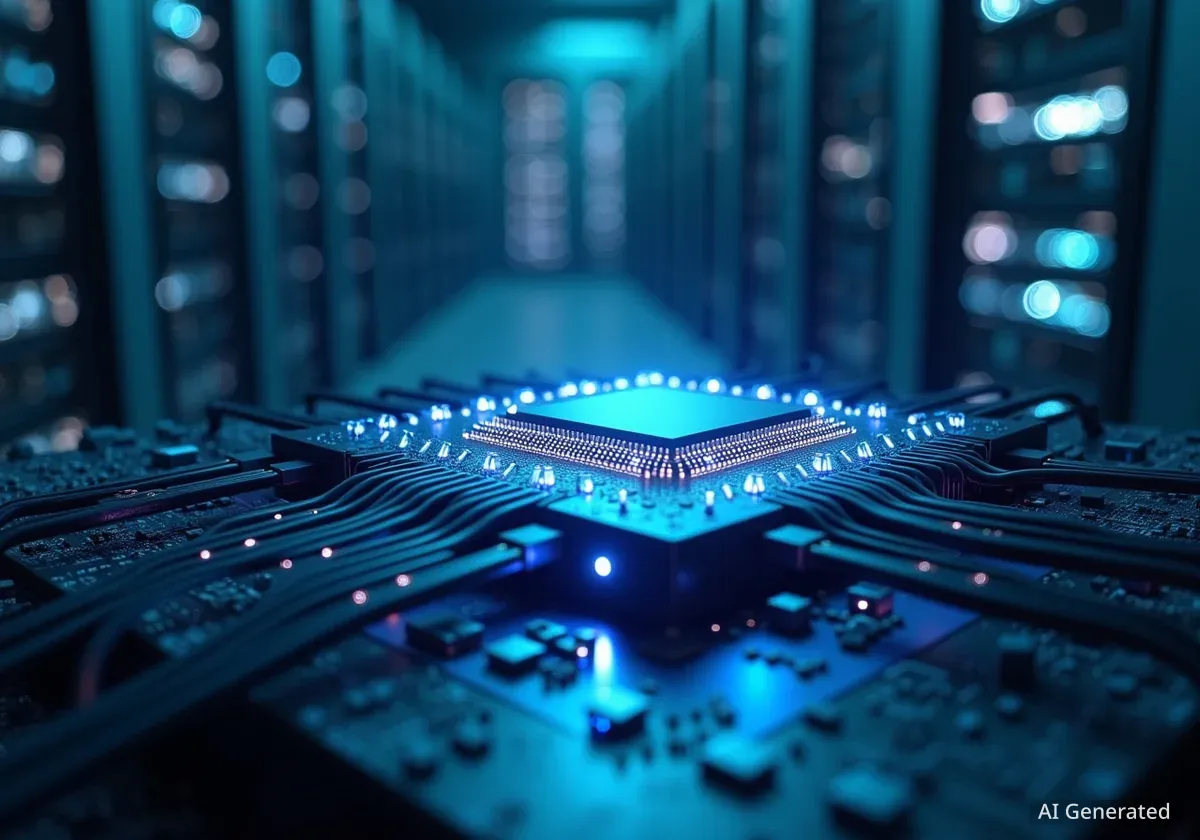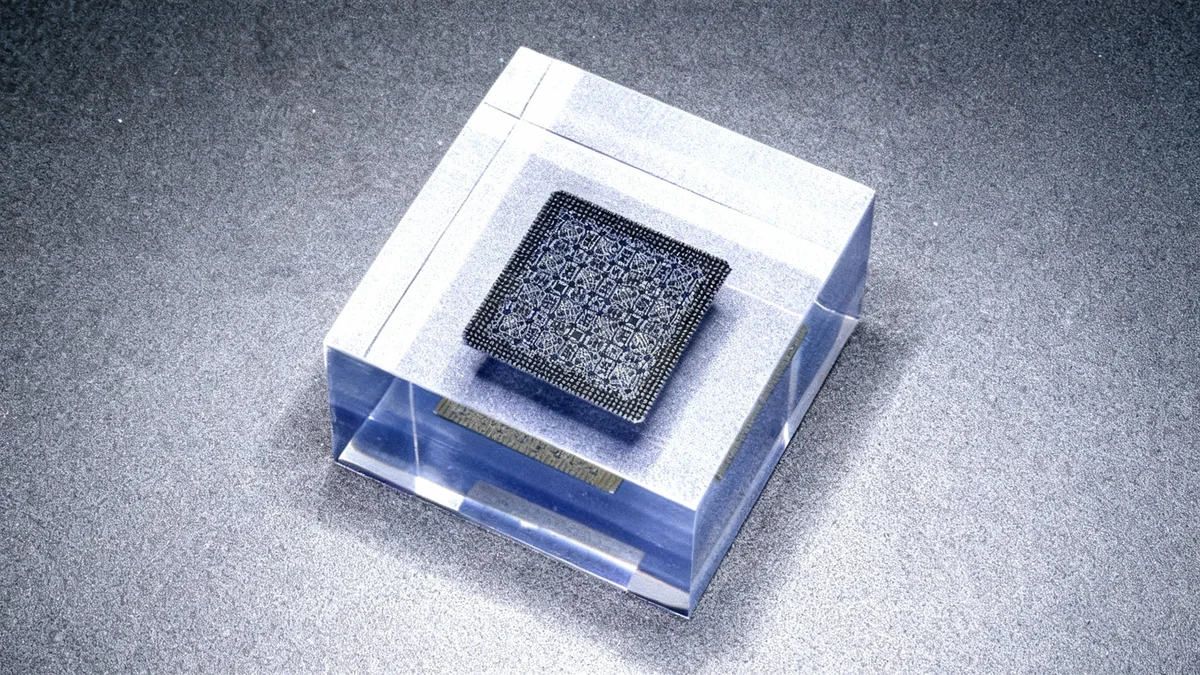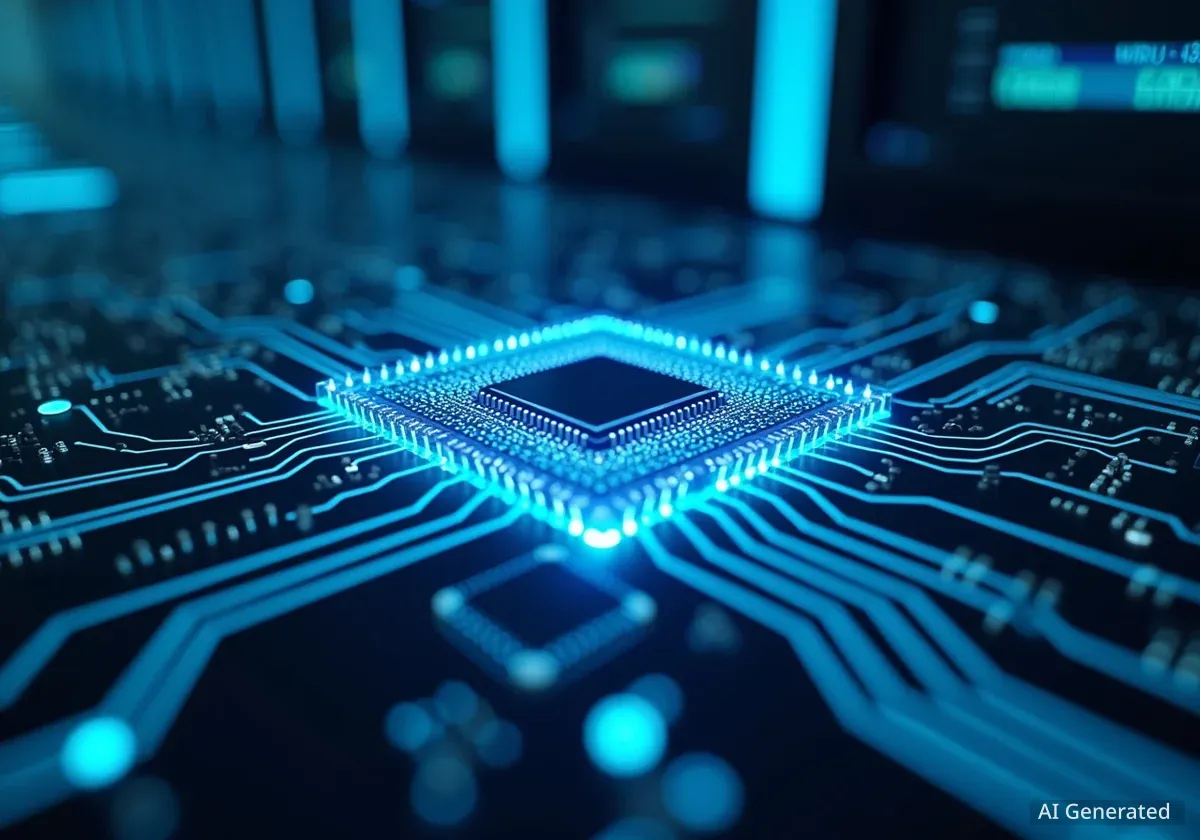IonQ, a company specializing in quantum computing, is positioning itself as a key player in the emerging field by focusing on high-accuracy quantum systems. The company's technology, which currently holds records for computational fidelity, is being developed to potentially enhance artificial intelligence and other complex computational tasks.
Key Takeaways
- IonQ is a pure-play quantum computing company that is publicly traded.
- The company's primary technological advantage is its high-accuracy trapped-ion quantum computers.
- Quantum computing faces a significant challenge with high error rates compared to traditional computers.
- There is potential for quantum systems to work with traditional hardware, like GPUs, to improve AI performance and energy efficiency.
The Primary Hurdle in Quantum Computing
The widespread commercial adoption of quantum computing is currently limited by a significant technical challenge: computational accuracy. Quantum systems are inherently prone to errors that can disrupt calculations.
Today's most advanced quantum computers have error rates around one mistake in every 100,000 calculations. While a major improvement over earlier systems, this is still far from the reliability of conventional computer chips.
A Matter of Precision
Traditional computer processors achieve an extraordinary level of reliability, with error rates estimated at approximately one in a quintillion (a billion billion) operations. This level of accuracy is the benchmark that quantum systems must strive toward for commercial viability in many applications.
This gap in reliability is a central focus for the entire industry. For quantum computers to solve practical problems effectively, their ability to perform calculations without errors must improve by several orders of magnitude.
IonQ's Focus on Accuracy
IonQ has established a leading position in the industry by prioritizing the reduction of these error rates. The company's approach uses a technology known as trapped-ion quantum computing.
This method has allowed IonQ to achieve record-setting performance in key industry metrics. The company reports a 99.999% fidelity rate for single-qubit operations and a 99.97% fidelity rate for two-qubit operations. These figures represent a significant step forward in quantum accuracy, placing the company ahead of many competitors who are working to achieve fidelity in the 99% to 99.9% range.
The Accuracy Versus Speed Trade-Off
IonQ's trapped-ion technology is recognized for its high accuracy, but it operates at slower processing speeds compared to other methods, such as the superconducting qubits used by many rivals. However, for many potential early adopters of quantum technology, a more accurate and reliable system may be preferable to a faster but more error-prone one.
Industry analysts suggest that proving reliability will be critical for gaining initial market share. If IonQ can maintain its lead in accuracy, it may be well-positioned to offer commercially viable systems sooner than its competitors.
Drawing Parallels to Nvidia's Rise
The strategy of establishing technological superiority early in a new market is often compared to Nvidia's trajectory in the AI sector. Nvidia's graphics processing units (GPUs) became the standard for AI workloads because their hardware and software combination was the most effective solution when demand for parallel processing surged.
"Nvidia's software and hardware were the best at the start, so it won a massive share of the data center computing market. Some estimates still peg Nvidia's share of the data center market at over 90%."
This first-mover advantage created a dominant market position that has been difficult for competitors to challenge. If IonQ's technology becomes the preferred solution when quantum computing reaches commercial maturity, it could potentially capture a significant portion of the new market.
First-Mover Advantage
In technology markets, being the first to offer a viable, widely adopted solution often creates a lasting competitive edge. This was seen with Nvidia's GPUs for AI and OpenAI's ChatGPT for large language models. The first company to solve a major problem can set industry standards and build a strong ecosystem around its products.
Quantum Computing's Potential Impact on AI
One of the most discussed applications for quantum computing is its potential to augment artificial intelligence. The industry is exploring a hybrid approach where quantum processors work alongside traditional hardware like Nvidia's GPUs.
In this model, quantum computers would handle specific types of complex calculations that are difficult for classical computers, while GPUs would continue to manage other AI workloads. This collaboration could unlock new capabilities and efficiencies.
Energy Efficiency as a Key Driver
A significant benefit of this hybrid approach could be a reduction in energy consumption. Training and running large AI models require massive amounts of electricity, which is a major operational cost and a bottleneck for growth for large-scale data centers. Quantum computers have the potential to solve certain problems with far less energy, making AI operations more sustainable and cost-effective.
Market Outlook and Investor Considerations
For IonQ to achieve a market position comparable to Nvidia, it must successfully commercialize its technology as the quantum industry matures. This involves not only maintaining its technological lead but also building a robust ecosystem of software and partners.
However, it is important to note the differences between the two markets. The potential applications for quantum computers are currently seen as more specialized than the broad use cases for GPUs. Quantum machines excel at specific tasks like optimization problems, materials science, and drug discovery, but they are not expected to replace classical computers for everyday tasks.
Therefore, while the market for quantum computing is expected to be substantial, its overall size may be different from the market for general-purpose AI hardware. Investors will be watching closely to see if IonQ can translate its current technological lead into sustained market dominance in the coming decade.





